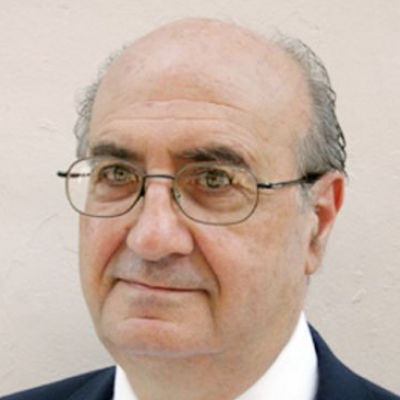Qaddafi, It Is Time to Go
Why must the international community force Qaddafi to step down?
February 25, 2011
I became aware of the nature of Mr. Qaddafi’s regime during a professional visit to Libya in 2006. I was in a taxi with a friend when the driver, after learning my friend and I were from Argentina, started talking enthusiastically about Maradona and Argentine soccer.
As we were passing some military barracks, my friend, rather naively, asked the driver if these were Qaddafi’s living quarters. The driver’s facial expression, a genuinely friendly one until then, immediately changed to a hostile, fearful look.
Realizing that he had made a faux pas, my friend immediately went back to talking about Maradona. In spite of that, the driver never resumed his friendly way with us again. Although this was a small incident, we became aware of the climate of fear reining the country, and of the obsessive nature of its ruler.
The way things are going in Libya, with Qaddafi massacring his own people with the help of mercenaries, indicates that the time has come to exert the greatest international pressure and force him out.
Qaddafi has failed to realize that the current people’s rebellion is the result of his abusing them for more than 40 years, leading a tyrannical and corrupt government and antagonizing many countries with his erratic, criminal behavior. Rather, he believes that it is the result of a flare-up of tribal rivalries bent on destroying what he considers is the people’s power in Libya.
Since he took power in 1969, he has been able to maintain control of the population through the use of an omnipresent security apparatus.
Recent admissions from his own former officials shed necessary light on his regime, as African mercenaries are descending on Tripoli to help quell the rebellion. How miserable can a person be to use foreign soldiers to kill his own people?
“We are sure that what is going on now in Libya is crimes against humanity and crimes of war,” said Ibrahim Dabbashi, Libya’s deputy ambassador to the United Nations, who resigned as the situation was unfolding in Libya.
And now we have an even more striking revelation regarding Qaddafi’s role in the Lockerbie bombing, in which 270 people were killed over southern Scotland in a Pan Am flight bound for New York. “I have evidence that Qaddafi ordered the Lockerbie bombing,” stated Mustafa Abdel-Jalil, Libya’s recently resigned justice minister.
During my stay in Libya, I would learn about other incidents that profoundly troubled me, as was the case of five Bulgarian nurses and a Palestinian doctor who had been in detention for many years, falsely accused of spreading AIDS in Libya. I realized that Libya’s ruler would stop at nothing to get revenge for what he thought was his unfair portrayal in the Western press.
The six health workers had been accused of infecting 426 children with the HIV virus. Many in Libya, and most of the international community, believed that they were trumped up charges.
According to EU and U.S. officials and human rights advocates, the six health workers were charged with these crimes to cover up poor hygiene conditions at the hospitals where infections took place. (Some of the children had been infected even before the health workers arrived.) The six health workers were tortured to extract confessions.
Finally, a deal was reached under which Bulgaria, the United States, Britain and the European Union agreed to set up a nongovernmental organization to provide financial support to the families of the infected children. Although the six health workers were eventually released, the incident showed once more that Qaddafi had no qualms about using torture and false information in pursuit of his own, devious goals.
With an increasing number of Libyan officials now abandoning his government, it is fair to assume that Qaddafi’s days are numbered. The United Nations and international community should continue to exert strong pressure to force Qaddafi to step down. To allow such a dangerous person to be in power is to risk the survival of thousands of Libyans.
Takeaways
How miserable can a person be to use foreign soldiers to kill his own people?
To allow such a dangerous person to be in power is to risk the survival of thousands of Libyans.
Libya's ruler would stop at nothing to get revenge for what he thought was his unfair portrayal in the Western press.
Read previous
Is It Global Weimar?
February 24, 2011
